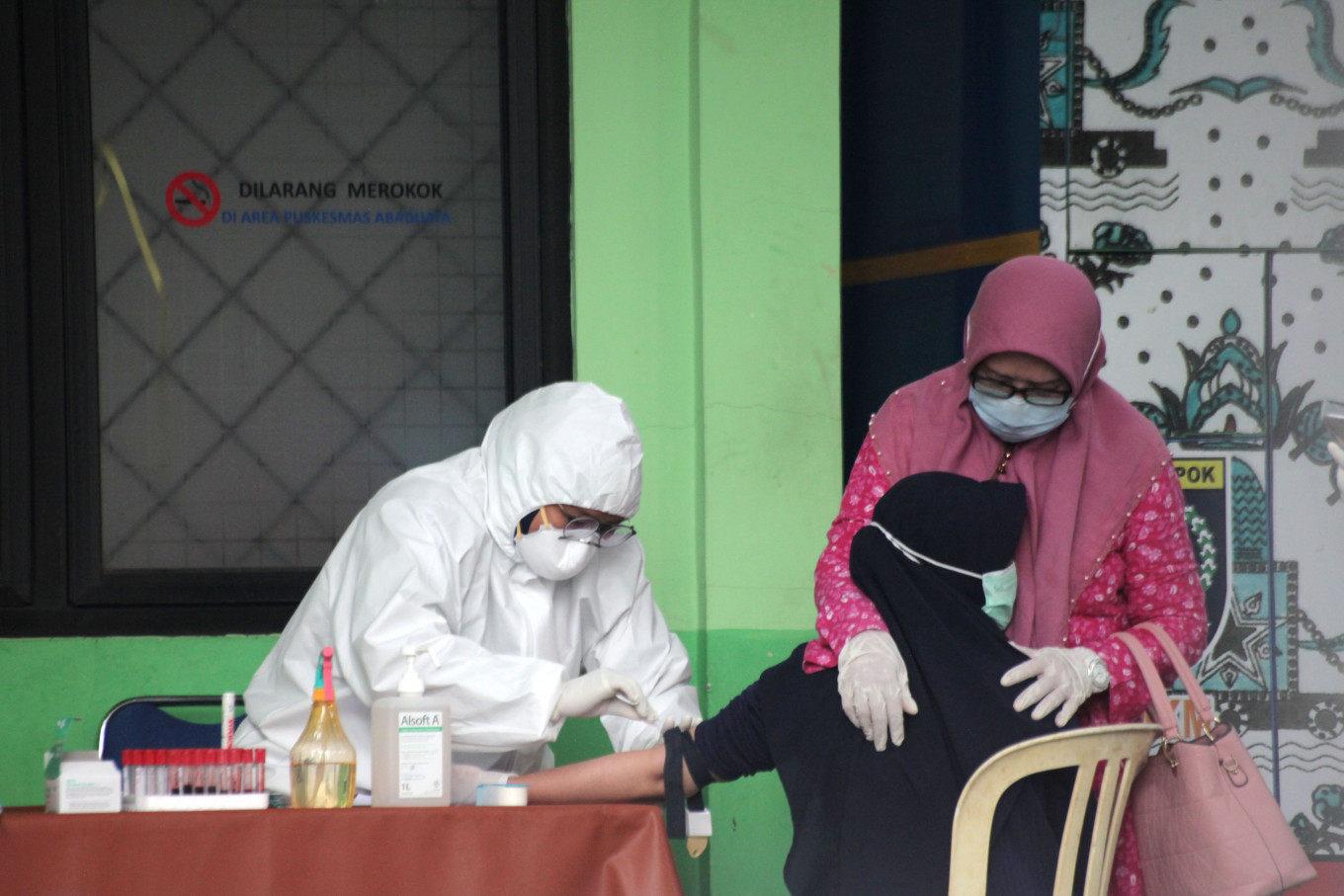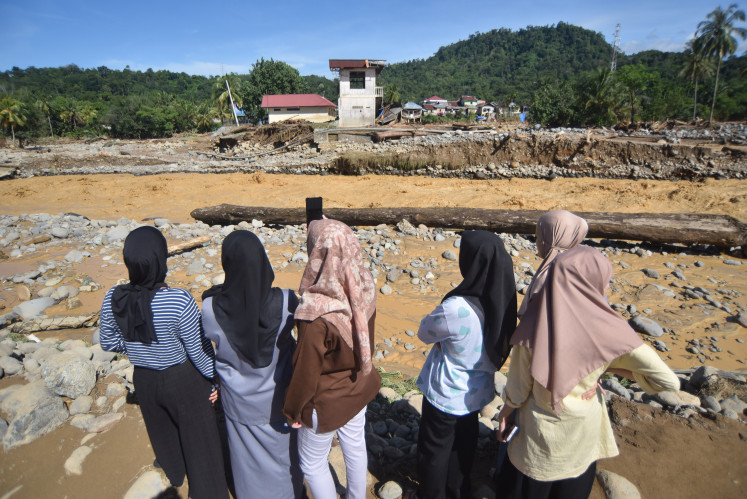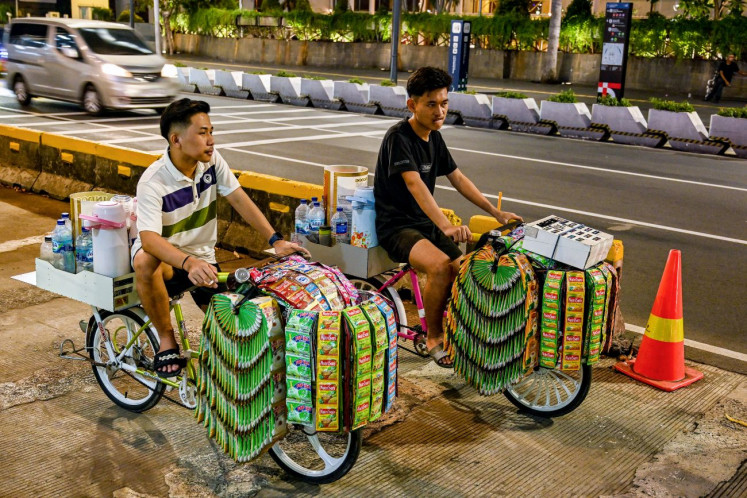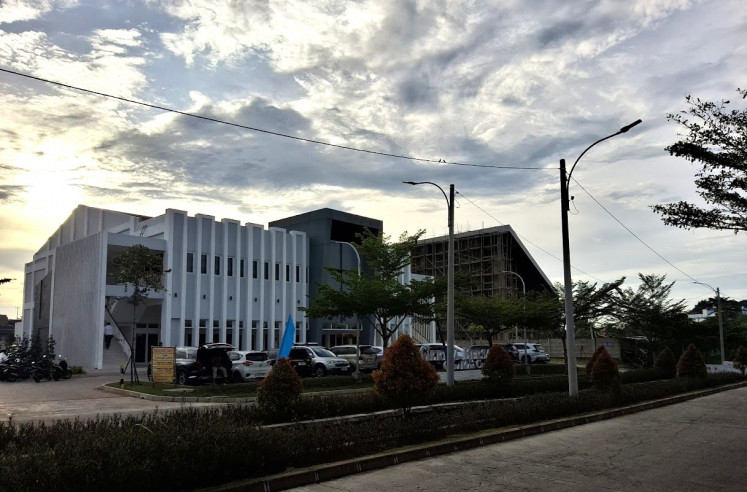Popular Reads
Top Results
Can't find what you're looking for?
View all search resultsPopular Reads
Top Results
Can't find what you're looking for?
View all search resultsBrace for the worst
The deeper concern is about managing the health crisis with limited medical facilities and an estimated national average of four doctors per 10,000 people.
Change text size
Gift Premium Articles
to Anyone
I
n recent weeks, as the fight against COVID-19 intensifies, Indonesia has lost at least 20 medical professionals, including specialists, professors, hospital directors and nurses. Five of them reportedly died on Saturday alone.
According to the Indonesian Medical Association, several physicians have succumbed to the coronavirus. Besides fatigue, overworked health workers are also faced with a lack of protective equipment, even as many parties are rushing to help supply masks, hazmat suits and face shields.
The deeper concern is about managing the health crisis with limited medical facilities and an estimated national average of four doctors per 10,000 people.
As of Sunday, 2,273 people had tested positive for COVID-19 and 198 patients had died.
Read also: Indonesia's latest official COVID-19 figures
Without serious intervention, including mandatory physical distancing measures and mass testing using swab samples, not the less accurate rapid test kits, the nation is projected to have 2.5 million COVID-19 cases by the end of this month, according to the National Development Planning Agency and University of Indonesia public health experts.
Even with thorough intervention, some 500,000 people could be infected, according to modeling based on assumptions that the first undetected cases came in February.
Jakarta Governor Anies Baswedan said 401 bodies had been buried under standard protocol for COVID-19 patients between March 6 and April 1. The capital’s death toll was 90 on Thursday.
Last week, President Joko “Jokowi” Widodo announced “large-scale social restrictions” based on the Health Quarantine Law. However, without penalties, it falls on local authorities to discourage travel and to closely monitor people arriving in their respective regions and ensuring they self-quarantine.
Regional leaders are thus nervously waiting for the annual homecoming mudik (exodus) ahead of post-Ramadan celebrations in mid-May, and following the President’s announcement on the nationwide restrictions, some have had to cancel their local quarantine initiatives.
The Health Ministry is authorized to approve proposed local quarantine plans, based on several criteria, including whether they can meet residents’ basic needs during the pandemic.
Vice President Ma’ruf Amin reportedly requested that the Indonesian Ulema Council issue a fatwa that declares mudik during a pandemic as haram, though President Jokowi has refused to ban the tradition. Regional leaders, citing a spike in COVID-19 cases in their areas, can only plead for people not to return home, as thousands of migrants whose workplaces have closed — resulting in lost income — continue with their early mudik plans, coming mainly from Greater Jakarta.
Read also: COVID-19: VP calls for ulema council to issue haram edict against exodus
The psychological toll of the pandemic goes beyond patients who test positive. As COVID-19 patients are being prioritized at hospitals, persons living with cancer and diabetes, for instance, have expressed fears of their worsening health, given their compromised immune system and overwhelmed health facilities.
Health workers hope to treat everyone, and they have expressed their appreciation for all the supportive messages and flowers sent in gratitude for their heroism. But they hope just as much that we stay home, so they can avoid becoming victims themselves.
In the meantime, they have no choice but to trudge on while mourning their fallen colleagues, all without being allowed to pay their final respects.










